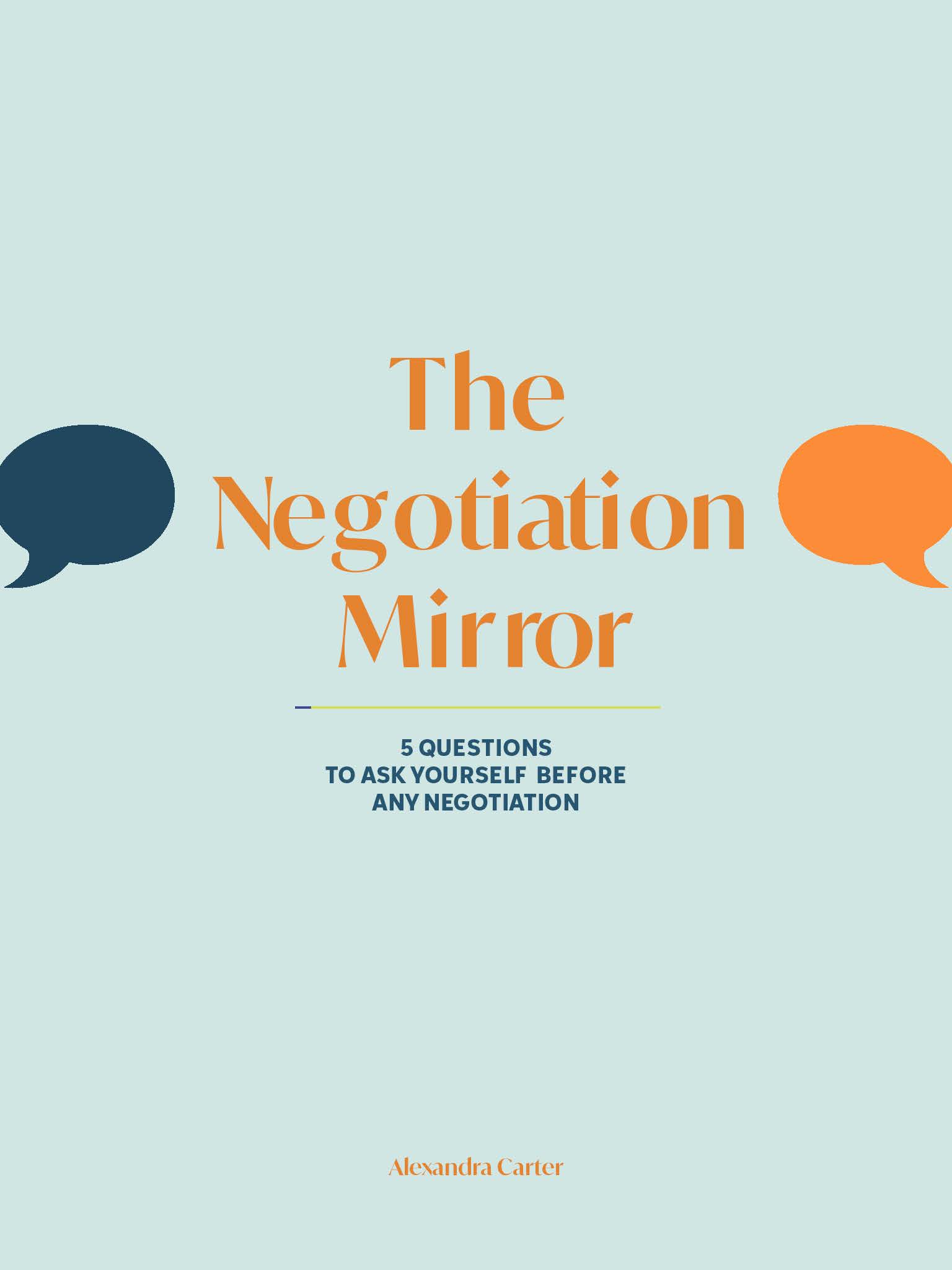Alexandra Carter is a Clinical Professor of Law and Director of the Mediation Clinic at Columbia Law School and author of the book Ask For More: 10 Questions to Negotiate Anything.
At its core, this book is about understanding the negotiation process with oneself, others, and the ability to truly listen. Alexandra Carter explains how to apply the principles of negotiation to everyday issues within life and work.
“Negotiation is steering. It’s any conversation in which you are steering a relationship in a desired direction. That means you don’t wait for the money conversation to teach someone how to value you. You should be thinking about steering that relationship in every conversation you have.”
Carter aims especially to encourage women in understanding and growing negotiation skills, to help pave more presence and equality in the workplace.
“The first thing I want women in particular to know is that asking for more is a community service. It means that you have normalized that process for the next woman coming after you.
The second thing I want people to know is that when you ask for more, you are actually teaching your organization what kind of leader you will be on their behalf.”
One way Carter encourages women to utilize negotiation skills is by using the I/We format, which refers to framing statements as follows: “Here’s what I’m asking for,” “here’s what I’ve achieved,” and “here is how we all benefit.”
This approach shows the listener that you value others on your team, the company itself, and that you value yourself.
“If all we talk about is the collective, the ‘we’, we run the risk of not looking like a leader. If all we do is come in and say ‘I did/I want’, we run the risk of being labeled as overly aggressive. It’s unfair, but this is what exists.”
Carter also suggests that you shouldn’t ask questions that only require a yes or no answer (also known as “closed” questions). Instead, Carter recommends using questions that start with “What” or “How”, e.g. “What can we do to get there?” to facilitate discussion and the sharing of ideas.
Whether you’re miserable or thrilled with the way your negotiations went, negotiation holds the key to getting ahead in the workplace, resolving conflicts, and creating value.
To conclude, negotiation is simply a technique, a discussion among individuals to reach a mutual agreement where everyone gains something or the other and conflicts are avoided.

Get The Negotiation Mirror
Get the free PDF guidebook that will help you unlock the first step in all great negotiations: understanding yourself.